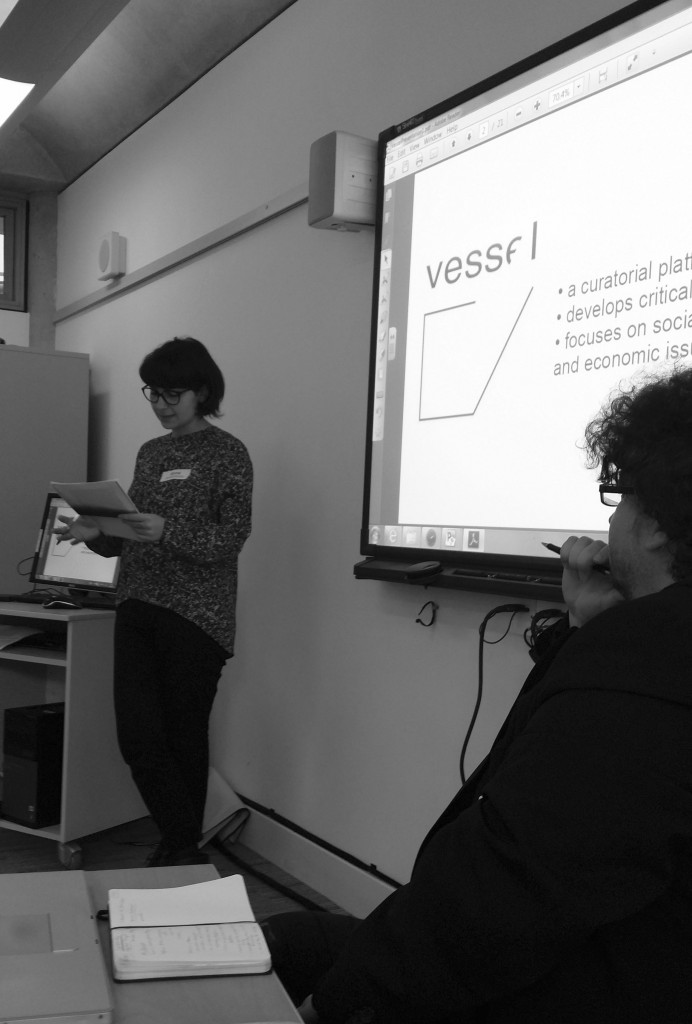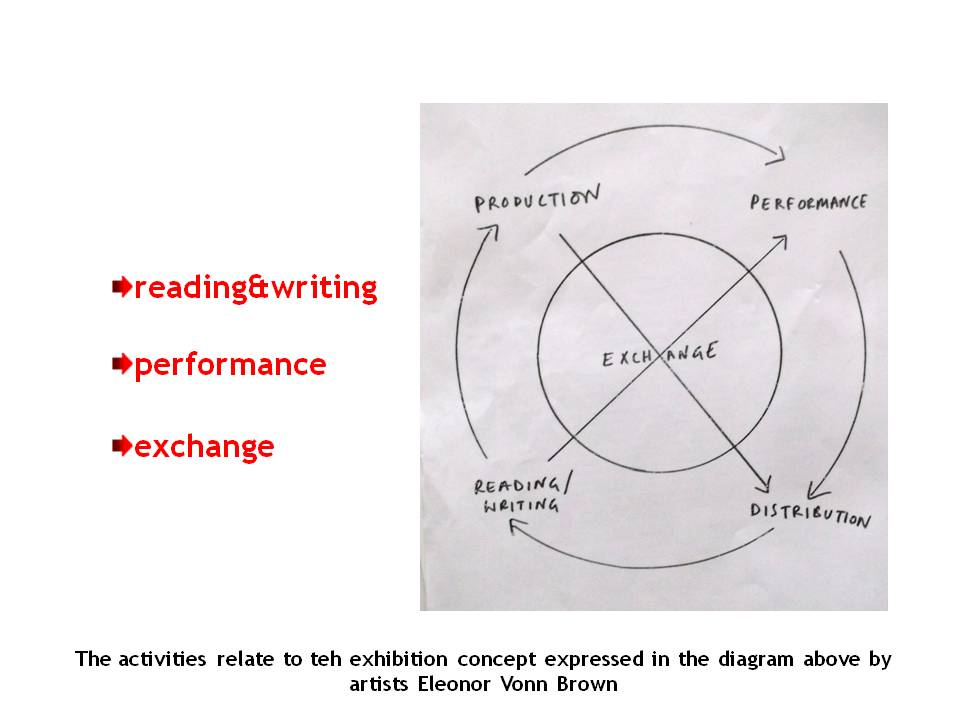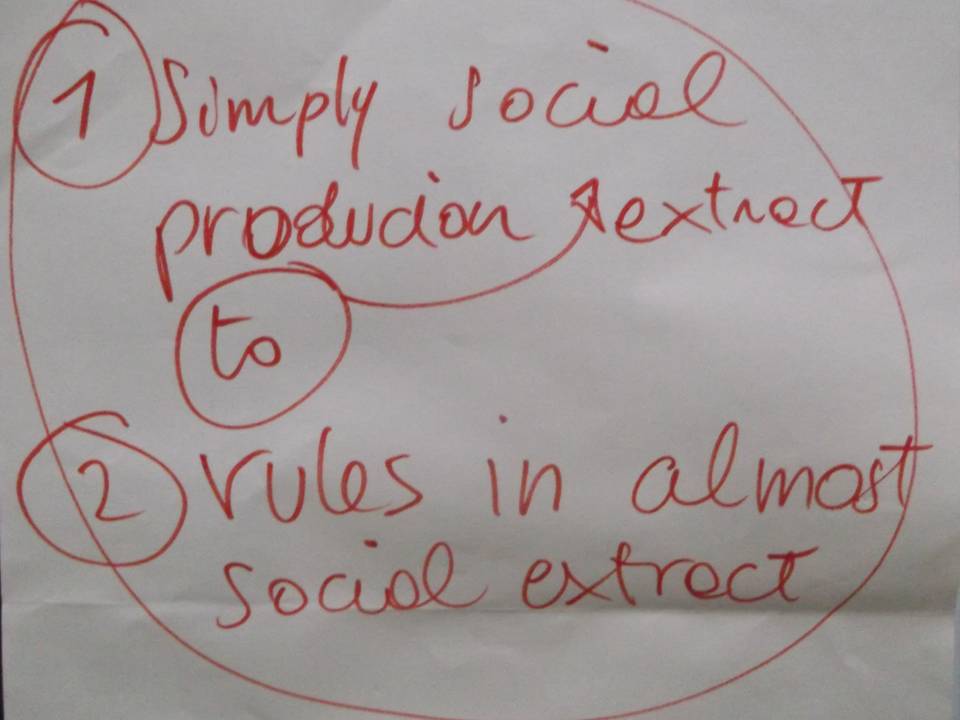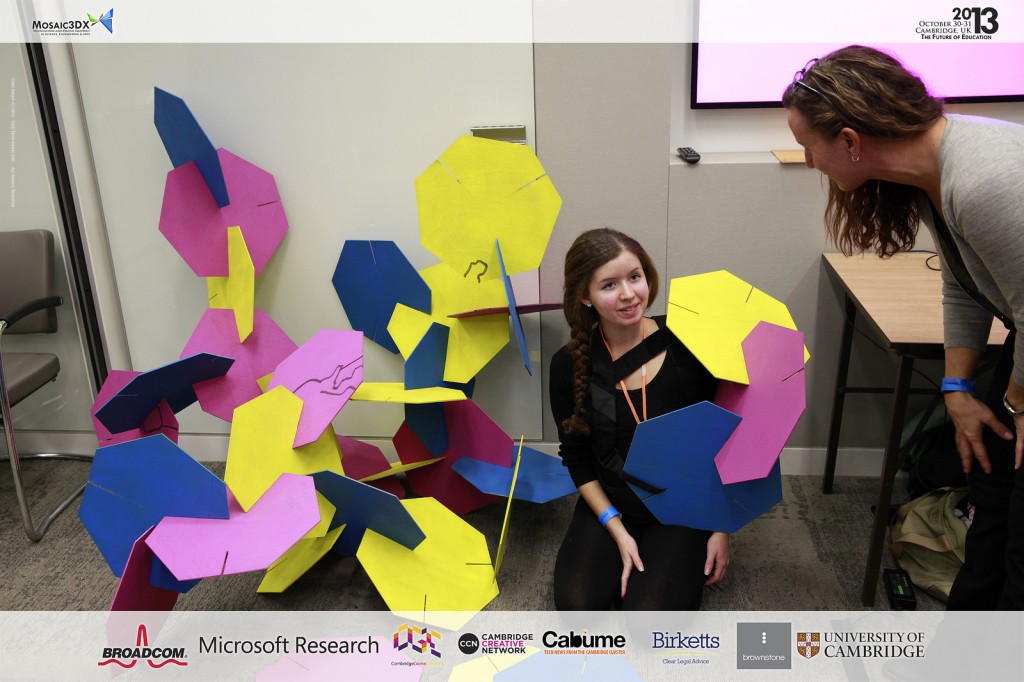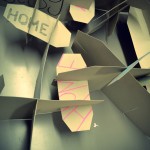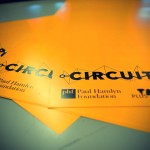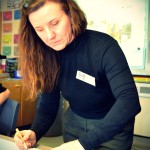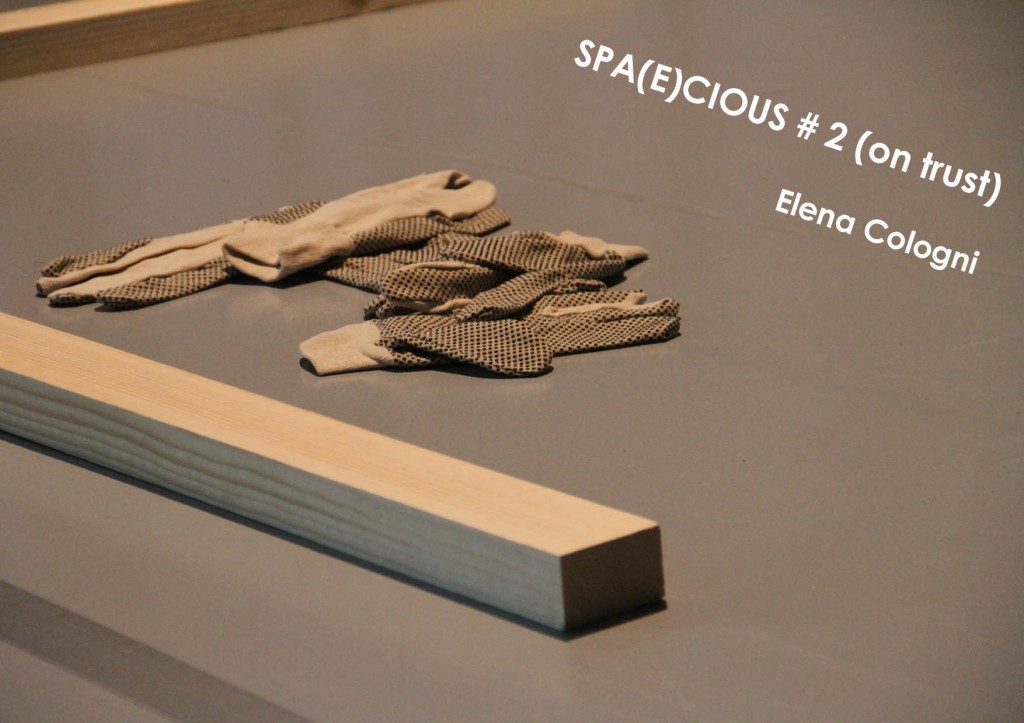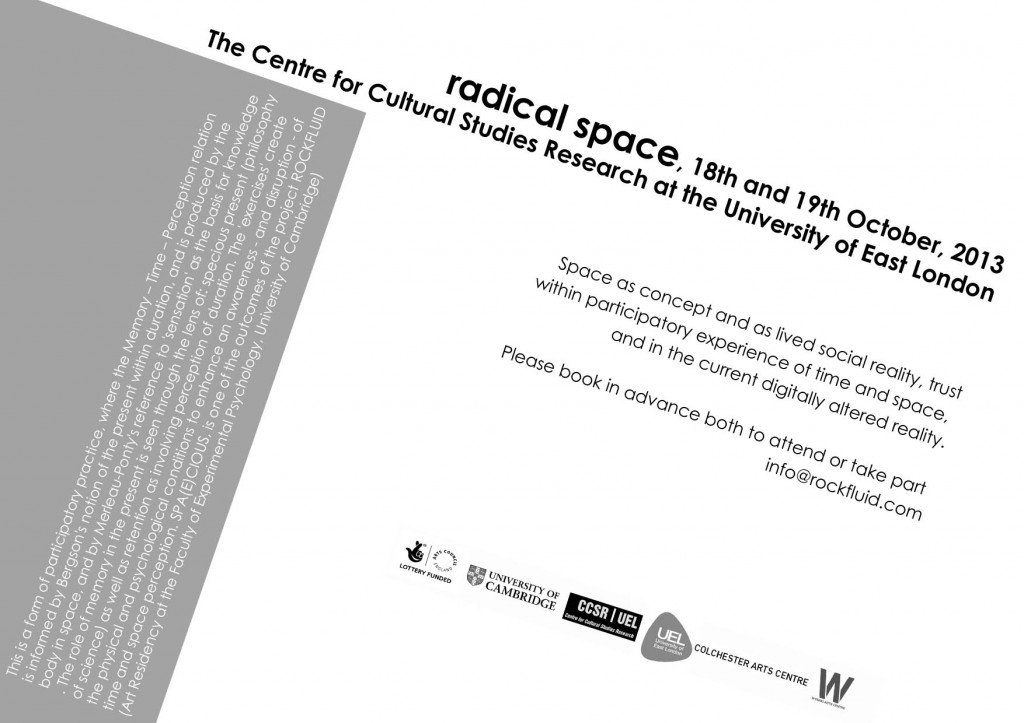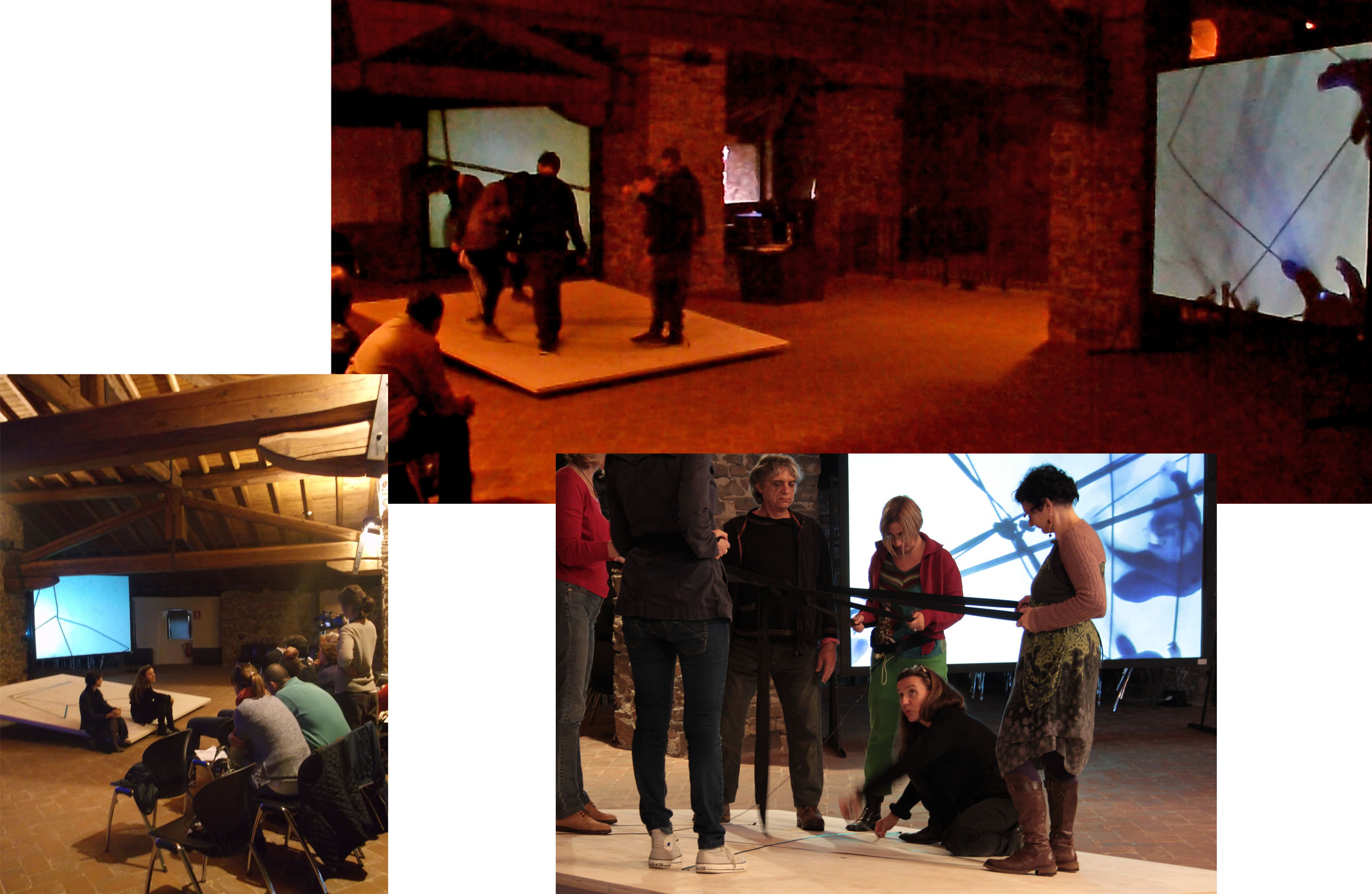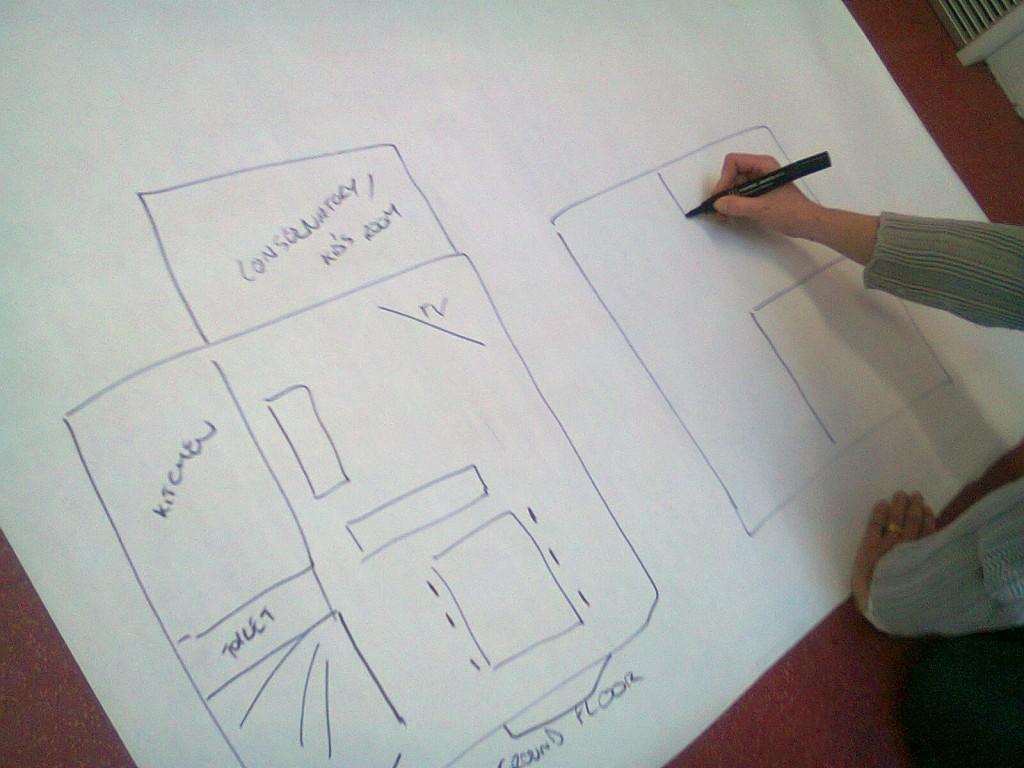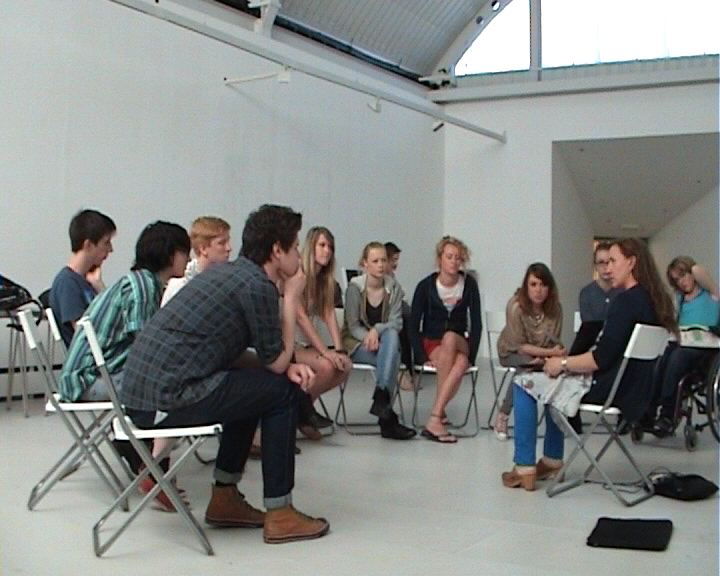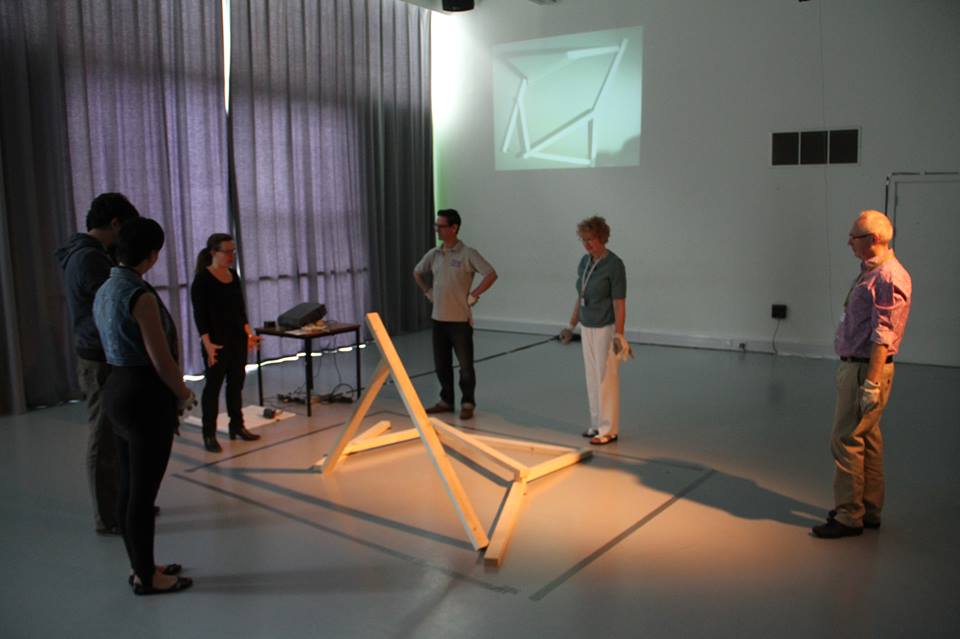dialogic and interdisciplinary
I have organised a roundtable discussion on the 24th of October 2014, part of the conference Building Interdisciplinary Bridges Across Cultures, University of Cambridge.
The roundtable will address dialogue in different forms, as performative, and in some case pre-linguistic, to inform interdisciplinary approaches, including from artistic, curatorial and education practices and research. Dialogic dynamics, in relation to the term Littoral (from geography, by Kaster, 2004), defining an unstable boundary, and considering micropolitics, in communities and physical locations. The contributors  are:
Circuit Cambridge (https://circuit.tate.org.uk/)
¬†Elena Cologni, artist and theoretician, she has a PhD from the University of the Arts London, Central Saint Martin’s College of Art and Design, received awards for her artistic research from the Arts and Humanities Research Council, and the Arts Council of England, also winning Escalator live art and Visual Art. Residencies include: Creative Lab at Centre for Contemporary Art in Glasgow 2006-2008, Yorkshire Sculpture Park 2009, and Faculty of Experimental Psychology, University of Cambridge (2011-2013).¬† The main outcome of the latter is the umbrella interdisciplinary project ROCKFLUID ( Arts Council of England 2011/13 and 2014/15)¬† http://rockfluid.com
Julian Klein ,  artist, Director of  !KF (Institute for Artistic Research http://www.artistic-research.
Anna Santomauro is the Co-Founder and Chief Curator with Viviana Checchia of Vessel  a non-profit arts organization devoted to developing critical discourse around pertinent contemporary social, political, and economic issues. Vessel has developed numerous projects in Turkey, Italy, Greece, USA,UK (In Dialogue, Nottingham is only one of them). VESSEL was the winners of the 2013 ICI and The Dedalus Foundation Research Award for curators, and toured the USA with the aim to investigate different curatorial approaches developed from the exhibition Culture in Action, and to re-contextualize these curatorial practices within the European and Euro-Mediterranean perspective. http://www.vesselartproject.
 Dialogue as in Littoral Art[1] , a term which indicates art with shifting boundaries of knowledge and contexts the meaning of which derives from the subjects involved (artist, participants, collaborators). Littoral is also a word coming from geography and clearly suggesting an idea of territory and site specificity.
http://www.educ.cam.ac.uk/

[1] Grant Kester  , Dialogical Aesthetics: A Critical Framework For Littoral Art  http://www.variant.org.uk/9texts/KesterSupplement.html accessed on 09/09/2013 also check Grant Kester  2011 The One and the Many: Contemporary Collaborative Art in a Global Context, (Duke University Press)
TEACHERS’ INSETS SERIES
Creative responses to ‘X-Operative’ exhibition at Wysing Art Centre on collaboration is the second of a series of insets for teachers under the umbrella title ‘activate and animate’
This in November 2013 was devised by artist Elena Cologni leading an inset for teachers on 19/11/2013 at Wsying Arts Centre with Education Manager Bryony Graham.
Elena Cologni proposes a collaborative visual method to produce storytelling,  embedding issues of play, chance, truth and fiction. A practical thinking exercise aimed at opening new approaches and ways in to appreciating and responding to reading&writing, performance and exchange, some of the themes in the exhibition.
CIRCUIT, Cambridge
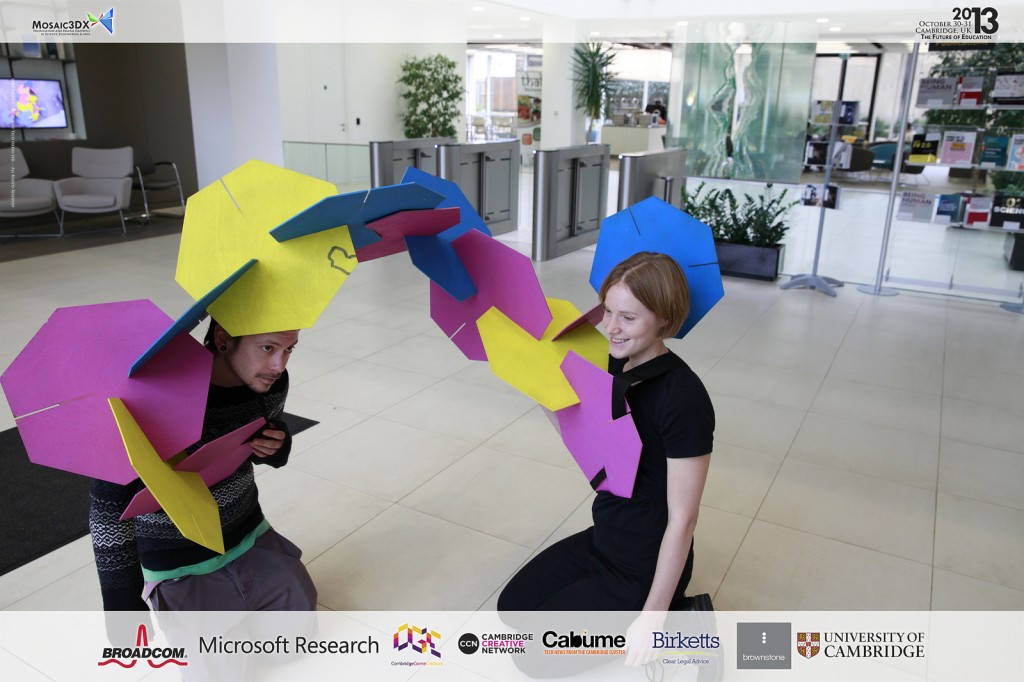 Mosaic3Dx,  at Microsoft Research Centre, Cambridge, October 2013
Mosaic3Dx,  at Microsoft Research Centre, Cambridge, October 2013
Circuit is a four year national programme connecting 15‚Äď25 year olds to the arts in galleries and museums.¬†Led by Tate and funded by the Paul Hamlyn Foundation, it provides opportunities for young people to steer their own learning and create cultural activity across art disciplines. Circuit involves Tate Modern and Tate Britain; Tate Liverpool; Tate St Ives and partners from the Plus Tate network: firstsite, Colchester; MOSTYN, Llandudno; Nottingham Contemporary; Whitworth Art Gallery, Manchester; and Wysing & Kettle‚Äôs Yard, Cambridgeshire.
http://www.tate.org.uk/about/press-office/press-releases/groundbreaking-ps5-million-arts-award-under-25s
http://www.cam.ac.uk/museums-and-collections/circuit-project-ages-15-25-kettles-yard-and-wysing-arts-centre
This is the link to a blog documenting a series of workshops I led as part of the program aiming at creating a collaborative piece for the Mosaic3Dx conference and exhibition in Cambridge at Microsoft Research Centre
http://circuitcambrigde.wordpress.com/2013/10/31/a-performative-sculpture-at-mosaic-3dx/
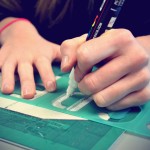 Neverhall School Cambridge in February 2014
Neverhall School Cambridge in February 2014
http://www.netherhall.org/2014/02/27/circuit-art-workshop/
extract from their page:
“As a part of this programme and in combination with our accreditation as an Arts Mark Gold school and sixth form centre we were able to approach Circuit for help in obtaining a sculpture or 3-dimensional based workshop. Our bid was successful and Dr Elena Cologni was keen to come into the school and work with a group of Year 10 Art GCSE students.
Dr Elena Cologni focus is on Dialogic Art based on participatory and site-specific pieces. She says ‚ÄėThe artwork creates a social environment in which people come together to participate in a shared activity‚Äô. The students worked with Elena to create a sculpture that was dependant on nothing but structural strength and informed by memories they have of precise locations in the school environment. The process of gathering memories in a visual format was integral to the works creation. This two-hour workshop was a great success and you can see photographs of the outcome below.
It was thoroughly enjoyable and our thanks go to Dr Elena Cologni and Tahira Fitzwilliam-Hall.”
RADICAL SPACE, Centre for Cultural Sudies, UEL, London
Bergamo Scienza, SPA(E)CIOUS
SPA(E)CIOUS, Dynamics of collective and individual experiences of memory, space and duration
BERGAMO SCIENZA 2013  ,  Saturday/Sabato 5 & Sunday/domenica 6 ottobre, Porta St Agostino, Bergamo
SPA(E)CIOUS¬†is a form of collaborative peripatetic practice,¬† where produced and shared knowledge informs the artist‚Äôs creative process. It creates the physical and psychological conditions to enhance an¬† awareness of the perception ‚Äď and illusion ‚Äď of time and space in the present. This artistic participatory¬† installation is based on the multidisciplinary approach the project Rockfluid (funded by the Arts Council of England), from a collaboration between artist Elena Cologni and scientist Lisa Saksida (University of Cambridge), in dialogue with curator Caterina Albano (Artakt and Art :science and technology research Group, Central Saint Martins College, London), and where art practice is underpinned by elements of cognitive psychology and philosophy. Hence, here within the relationship Memory ‚Äď Time ‚Äď Perception, the role of memory in the present is seen from a shared perspective (psychology and philosophy of science) including the definition of specious present. Furthermore an unstable platform represents the¬†element of interference with our physical experience.
on vimeo:
introduzione di Elena Cologni  https://vimeo.com/121023317
performance partecipata  https://vimeo.com/121023318
discussione tra Elena Cologni e Caterina Albano con il pubblico https://vimeo.com/121162549
SPA(E)CIOUS: dinamiche di esperienze individuali e collettive di memoria, spazio e durata
SPA(E)CIOUS √® un momento di esperienza condivisa di percezione e memorizzazione dello spazio e del tempo nel presente. L’installazione artistico-scientifica ha lo scopo di creare nel partecipante le condizioni fisiche e psicologiche per aumentare la consapevolezza della percezione di spazio e tempo attraverso esperienze in cui psicologia, disegno, video e perfomance si intrecciano. SPA(E)CIOUS si basa sul carattere multidisciplinare del progetto Rockfluid, frutto di una collaborazione tra l’artista Elena Cologni e la scienziata Lisa Saksida dell‚ÄôUniversit√† di Cambridge, in dialogo con la curatrice Caterina Albano ( Artakt e Art: science and technology research Group, Central Saint Martins College of Art and Design,¬†Londra), che coniuga il processo creativo con la psicologia della cognizione e la filosofia. In particolare l‚Äôesperienza sottolinea il ruolo che interferenze di varia natura possono avere sulla percezione di spazio e tempo nel presente: la variante in questo caso √® rappresentata da una piattaforma instabile su cui vengono proposti gli esercizi¬†
SCUOLE: secondarie di II grado ORARI: sabato 11.00 / 12.00 (2 turni) durata 45 minuti MAX 50 studenti
PRIVATI: 15+ ORARI: sabato 16.00 / 17.00 (2 turni) domenica  11.00 / 12.00 / 16.00 / 17.00 (4 turni) durata 45 minuti MAX 50 persone
Organizzazione: Rockfluid in collaborazione con University of Cambridge
Si ringrazia: BergamoScienza, Arts Council of England, University of Cambridge,  Elena Cologni Circle of Friends
Sponsor principale dell’evento:
assistenti: Laura Crevena,   Silvia Valenti, Sara Ravelli
the IMPACT of FAB (Family Happiness and Wellbeing project)
The Family Happiness and Wellbeing project is a pilot project I was asked to contribute to by Dr Hamphrey, by devising a program of creative interventions in Schools in parallel to a more traditional approach. This is supported by the Cambridge and Peterborough NHS Foundation Trust and  The University of Cambridge. I am very happy to have been able to work within this context, and hopefully make a difference by adopting the phenomenological approach at the basis of my art practice, interest in space and place and the collaborative methods adopted in ROCKFLUID .
Wysing Young Artists
Documentation of the workshop I gave in July 2012 at Wysing Art Centre, Bourn, Cambridge:
My aim to share a conceptual method, which involves taking them through a thinking and making process. I introduced the workshop titled The Mirror And Self Portraiture (By The Other), Hystory, Psychology And Art Strategies. My initial thoughts were that the group would engage in a collaborative process of inquiry, reflection, and creation by using writing, drawing, performance to experiment with responses to personal histories. Self-portraiture allows for a personal way to examine multiple global and local issues of identity and power relations. This terrain also allows the examination of how different ways of knowing and seeing the world impact how people understand each other and themselves.
Lincoln University, SPA(E)CIOUS # 2 (on Trust)
The Lincoln
School of Performing Arts,
University of Lincoln Fifth International Conference
on Consciousness, Theatre, Literature, and the Arts. June 2013
SPA(E)CIOUS # 2 (on Trust)
Dynamics of collective and individual experiences of space and duration within specious present, adopting technologies for enhancing audience engagement, while producing forms of documentation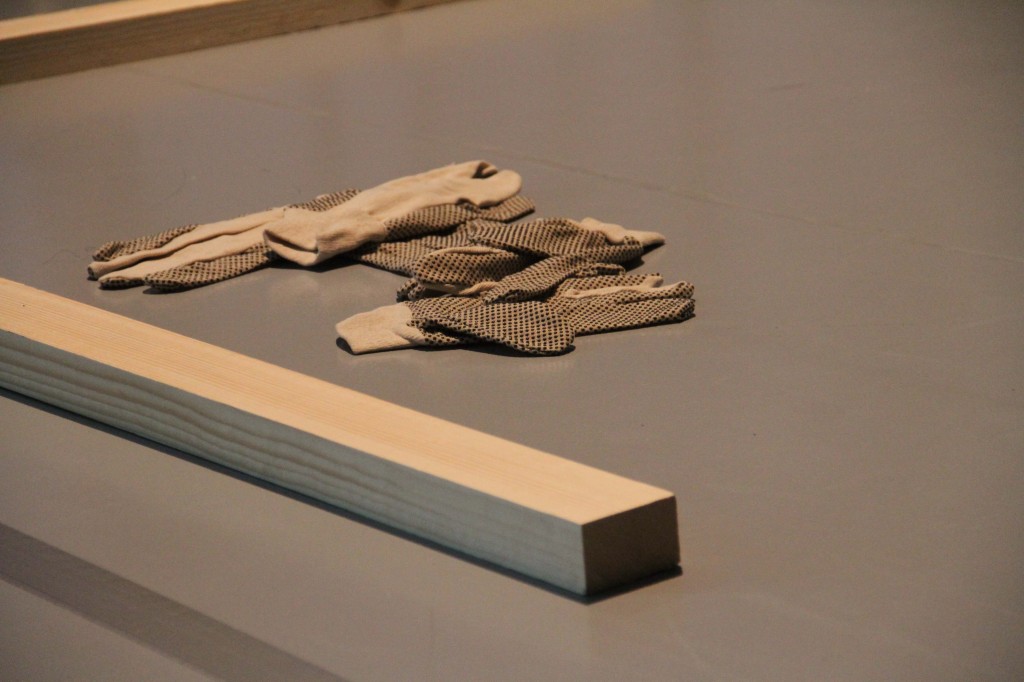
SPA(E)CIOUS
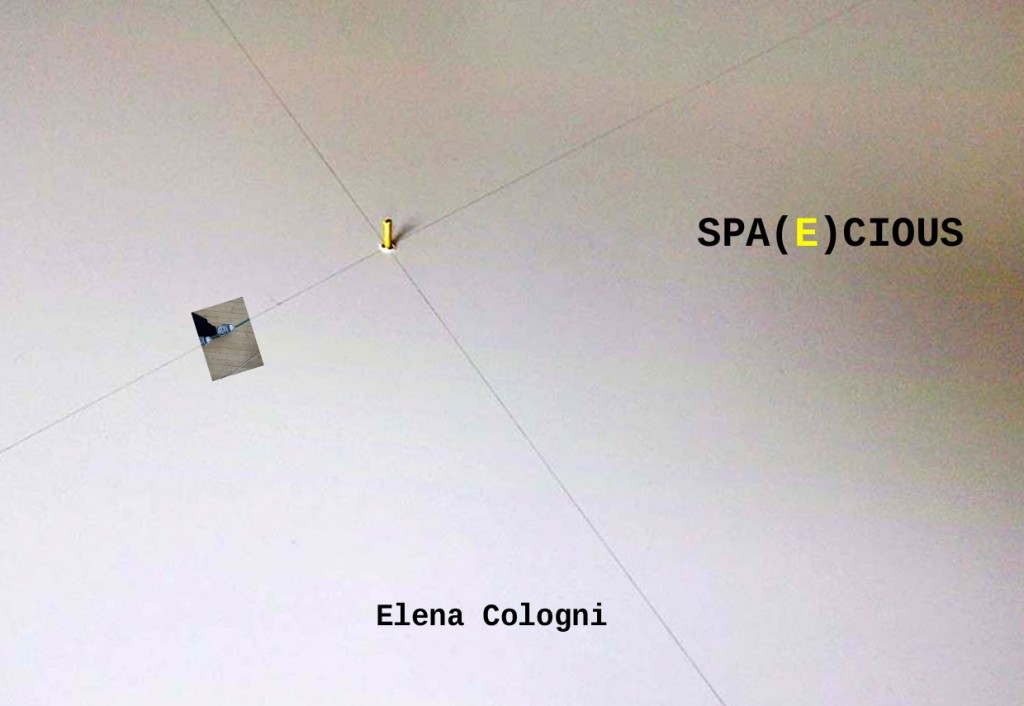
To walk through places involves kinesthesia, memory and our awareness of where we are in any given present moment.
SPA(E)CIOUS is a form of collaborative peripatetic practice,  where produced and shared knowledge informs the artist’s creative process. It creates the physical and psychological conditions to enhance an  awareness of the perception Рand illusion Рof time and space in the present
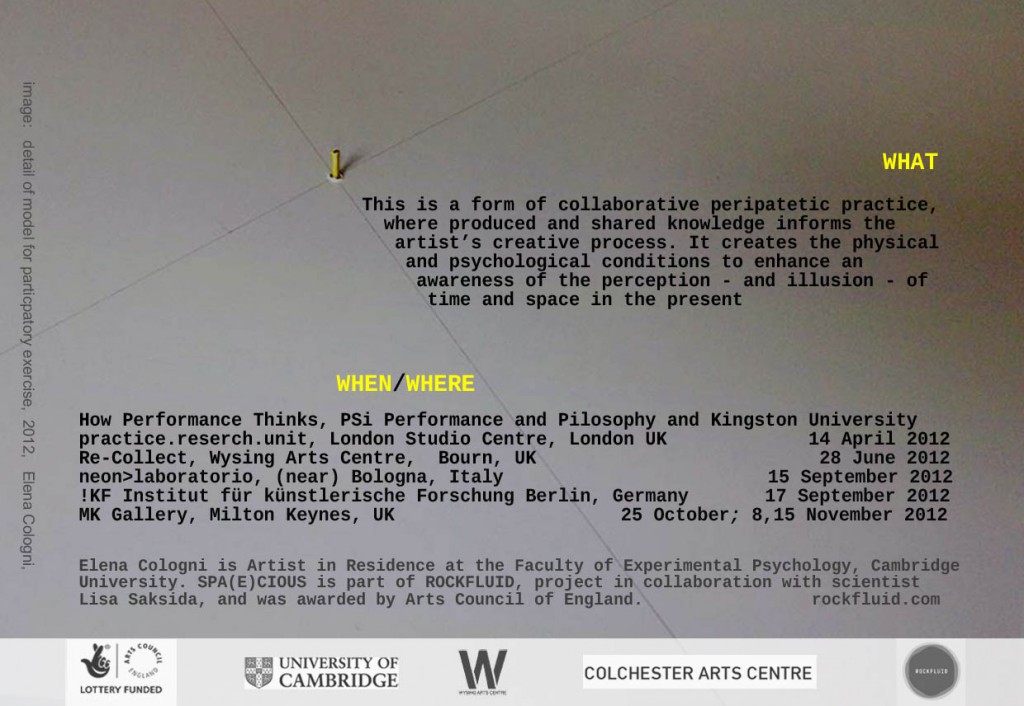
THE LONDON STUDIO CENTRE
Elena Cologni
SPA(E)CIOUS PRESENT
Dynamics of collective and individual experiences of space and duration within specious present, adopting technologies for enhancing audience engagement, while producing forms of documentation
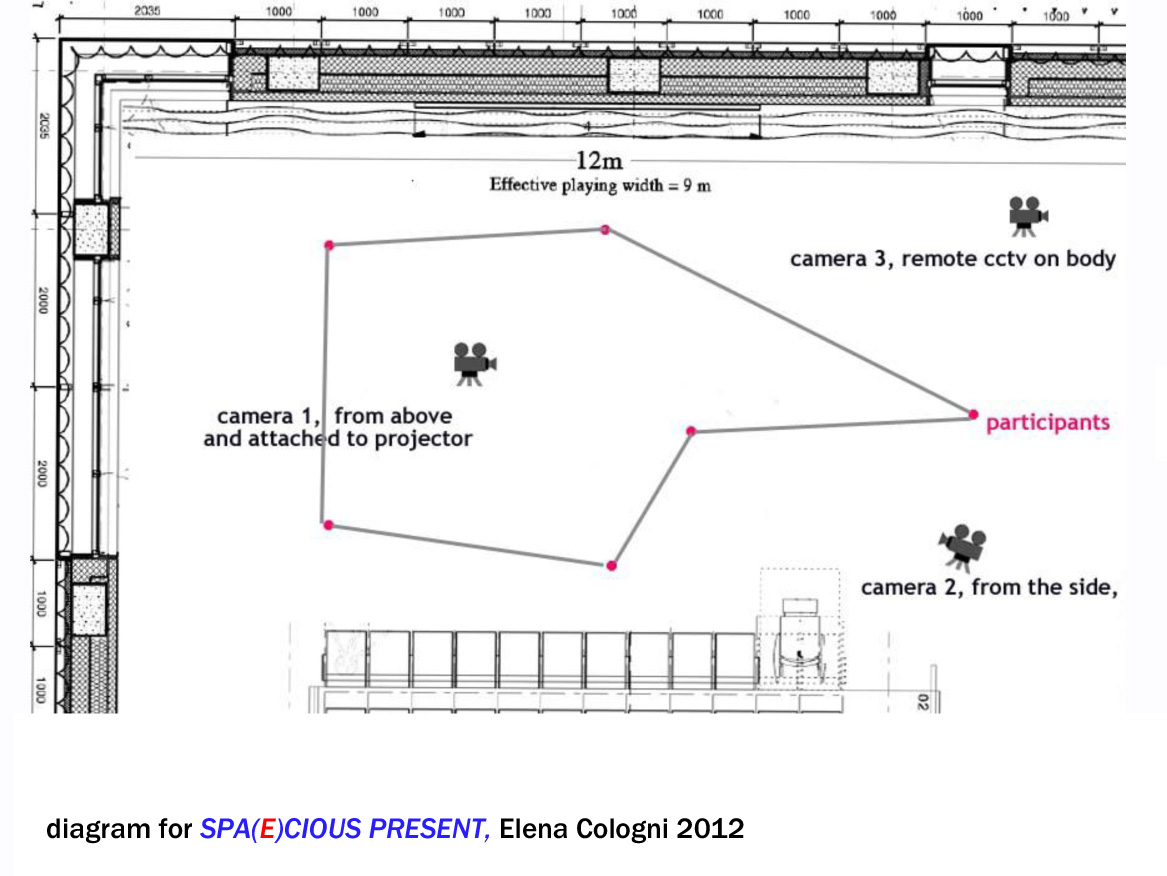 RATIONALE. The workshop (participatory live installation) is based on the multidisciplinary approach of my current project Rockfluid, where participatory site specific art practice is underpinned by elements of cognitive psychology and philosophy. Hence, here the relationship Memory ‚Äď Time ‚Äď Perception is informed by Bergson’s notion of the present within duration and as produced by the body in space, and by Merleau-Ponty’s reference to ‘sensation’ as the basis for knowledge. On the other hand the role of memory in the present is seen from a shared perspective (psychology and philosophy of science) including the definition of specious present as well as the nature of retention as involving perception of duration.
RATIONALE. The workshop (participatory live installation) is based on the multidisciplinary approach of my current project Rockfluid, where participatory site specific art practice is underpinned by elements of cognitive psychology and philosophy. Hence, here the relationship Memory ‚Äď Time ‚Äď Perception is informed by Bergson’s notion of the present within duration and as produced by the body in space, and by Merleau-Ponty’s reference to ‘sensation’ as the basis for knowledge. On the other hand the role of memory in the present is seen from a shared perspective (psychology and philosophy of science) including the definition of specious present as well as the nature of retention as involving perception of duration.
METHODS. This is a form of peripatetic practice, where produced and shared knowledge informs the artist’s creative process. It also creates the physical and psychological conditions to enhance an awareness of the perception of time and space.
WHAT. Three exercises involving technology on: memory in the present, digital time – subjective time, technology in perception and memorization of place, will result in microphies.
FURTHER INFORMATION
BACKGROUND. In Cologni’s PhD (2003), the relationship artist-audience is defined as the process of fruition: non simultaneous and happening through stages, and time. The time gap is instrumental for generating the interchange. This relationship operates first in the artist‚Äôs mind, then in the moment of the physical sharing of a space and after, when the audience meets the work‚Äôs documents again. In this, liveness is synonymous with continuous present, duration. It can be expanded to include the artist‚Äôs conception of the piece, its delivery/reception also when the artist is gone. In this sense the meaning of the work continually shifts, to a future present moment (just like when we recollect in the present). Her mediatised performances, installations and video manipulation point at the unstable nature of perception and memorisation of reality through time. ROCKFLUID, based on a collaboration between artist Elena Cologni and Psychologist Lisa Saksida, Department of Experimental Psychology, Cambridge University, is awarded by the Arts Council of England (Grants for the Arts Escalator program) through Colchester Arts Centre, and it is based at Wysing Arts Centre. Memory, perception and place in the digital economy are central to the project.
BIOGRAPHY. Dr Elena Cologni‚Äôs live, installation and performance wook, and related¬†tangible translations/manifestations, is grounded in conceptual art. Cologni has a PhD from the University of the Arts London, Central Saint Martins College of Art and Design, with the thesis: The Artist‚Äôs Performative Practice within the Anti-Ocularcentric Discourse. Her post doc project Present Memory and Liveness in delivery and reception of video documentation during performance art events‚Äô, received an AHRC Grant (2004-2006). In the outcome Mnemonic Present, Un-Folding series of 2005-2006, the use of ‚Äėlive-recording‚Äô and ‚Äėprerecording‚Äô opened up questions on the involvement of the audience and their perception of what is present and represented, generating a form of ‚Äėmnemonic present‚Äô (also with the use of the time gap in live projections). She was Research Fellow at York Saint John University during which time she developed the project Experiential (Re-Moved 2008, CCA, Glasgow, Gi08 and Geomemos, Yorkshire Sculpture Park 2009), when site specificity and notions of memory as archival and removal in trying to enhance the audience‚Äôs and her own experience of the self in any given moment. She is particularly active in the discussion on Research as Practice, interdisciplinary and participatory research, and she contributes with her expertise to the Cambridge University, Faculty of Education, Mphil Arts course since 2008.
at
How Performance Thinks
A two-day conference co-organized by the PSi Performance and Philosophy working group and Kingston University’s practice.research.unit
April 13th-14th 2012
The London Studio Centre, London
http://www.london-studio-centre.co.uk/   http://www.practiceresearchunit.co.uk/      http://psi-ppwg.wikidot.com/london-2012
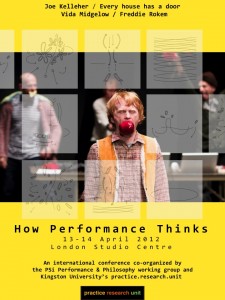 This conference brings together practitioners and scholars concerned with the question of how performance thinks from a wide range of overlapping perspectives
This conference brings together practitioners and scholars concerned with the question of how performance thinks from a wide range of overlapping perspectives
and contexts including practice-as-research, professional practice and the emerging sub-field of ‘performance & philosophy’. Can performance be
understood as a kind of thinking in its own right? What value might such an understanding have for performance and philosophical research, for academia and
for practices operating outside the academy?
With plenary speakers:
Vida Midgelow, Joe Kelleher and Freddie  Rokem
A work-in-progress showing of a new performance by Every  House Has a Door (Lin Hixson, Matthew Goulish, Bryan Saner, Stephen Fiehn,
and Tim Kinsella)
And presentations by: Stephen Bottoms / Jennifer Duffy / Thomas Richards / Simon Jones / Tender Buttons Theatre Company / Joana
Craveiro / Broderick Chow / Esa Kirkkopelto / Theron Schmidt / Julie Solovyeva / Tero Nauha / Stefanie Sachsenmaier / Kelina Gotman / Josefine Wikstrom / Augusto Corrieri / Moritz Gansen and Elisabeth Schilling / Charlie Saffrey / Katja / Jessica Walker / Joa Hug / Bernadette Anzengruber / Stefanie Husel /
Elena Cologni / Rosanna Irvine / Shaun May / Peter Boenisch / Rebecca Hillman / Joao Florencio / Nik Wakefield / Gabriella Calchi Novati / Alice Lagaay / Franziska Schroeder / Shimon Levy / Simon Bowes / Helmar Schramm / Mark
Greenwood / Michelle Graves / Sophia New and Siegmar Zacharias / David Levin / Rebecca Groves / Noyale Colin
WHAT HAPPENED

from a participant’s viewpoint (thank you Michelle)
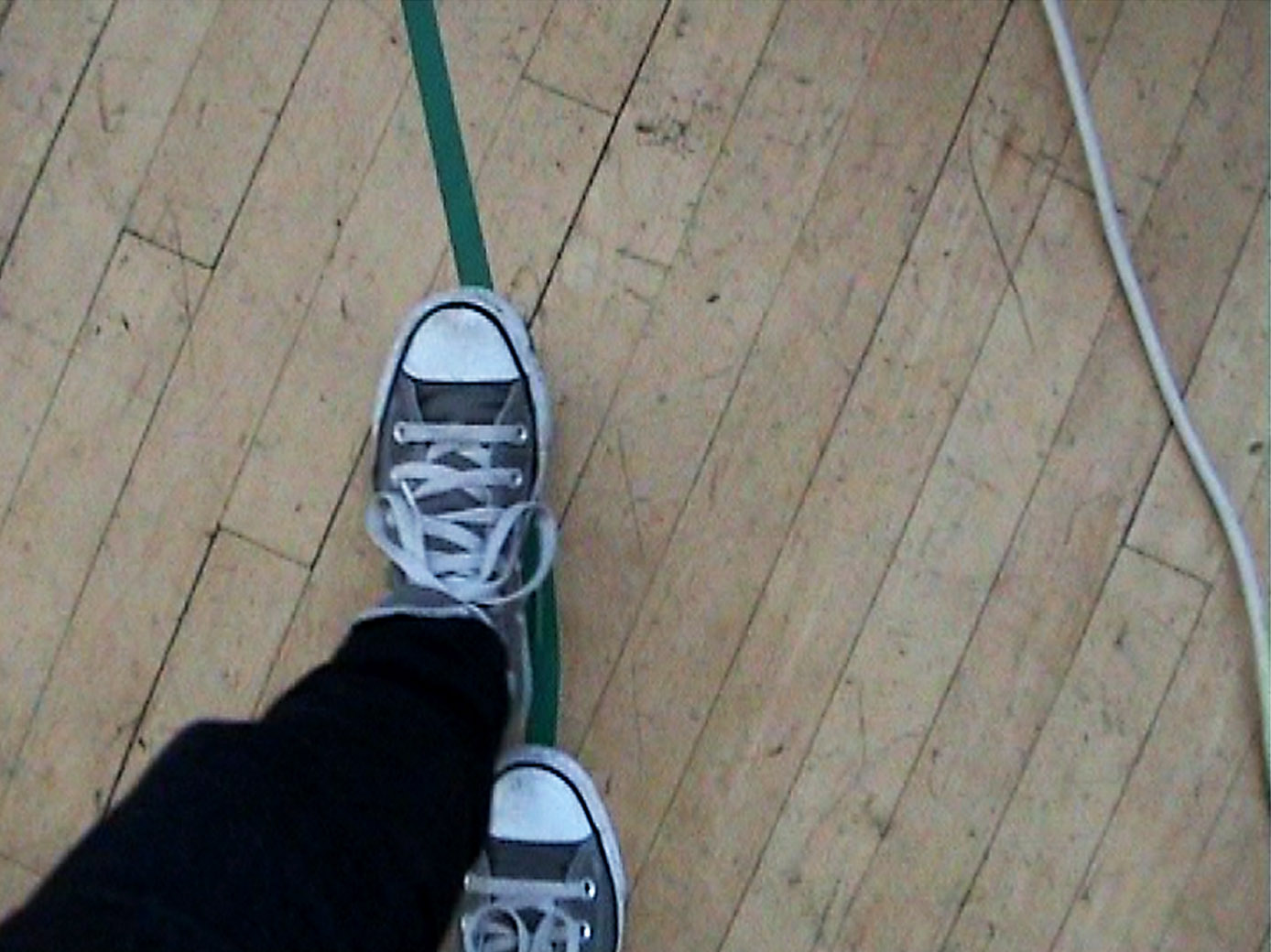
how long  did it take? Which shape was it?
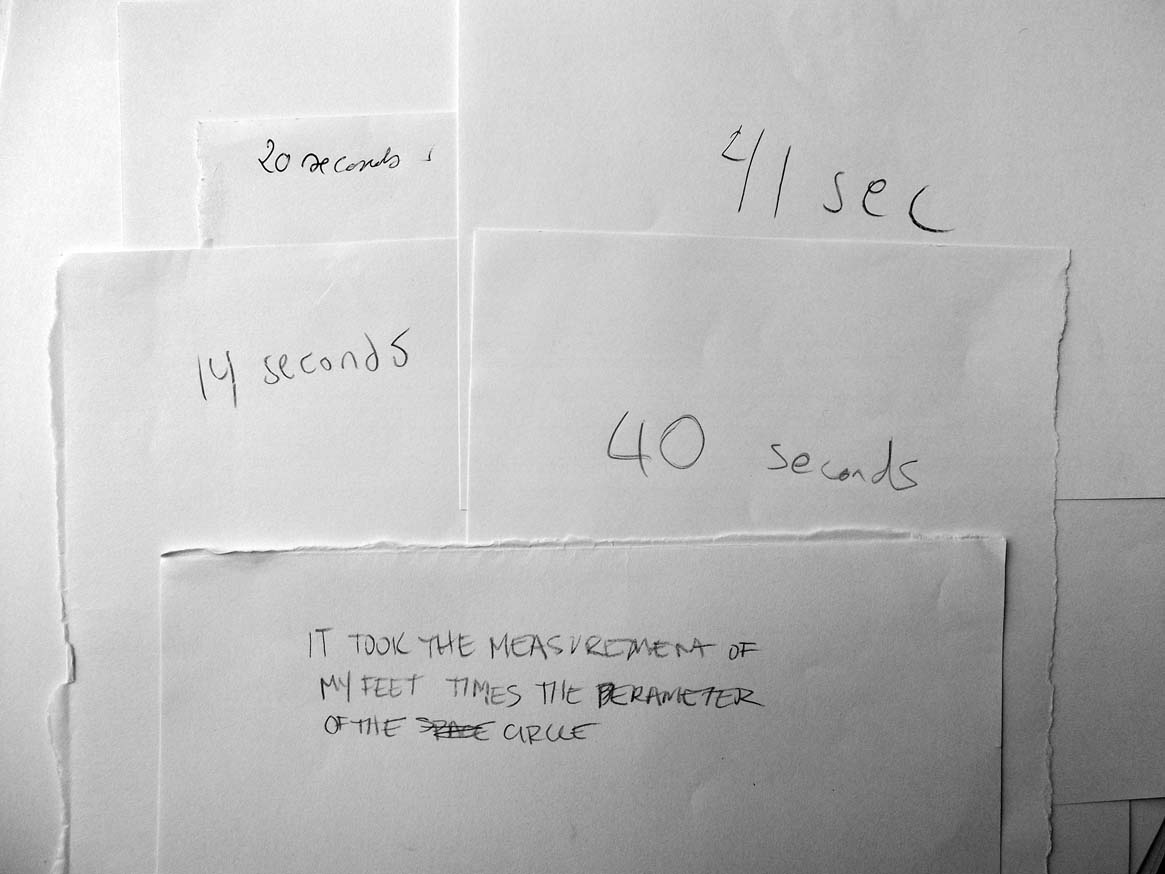
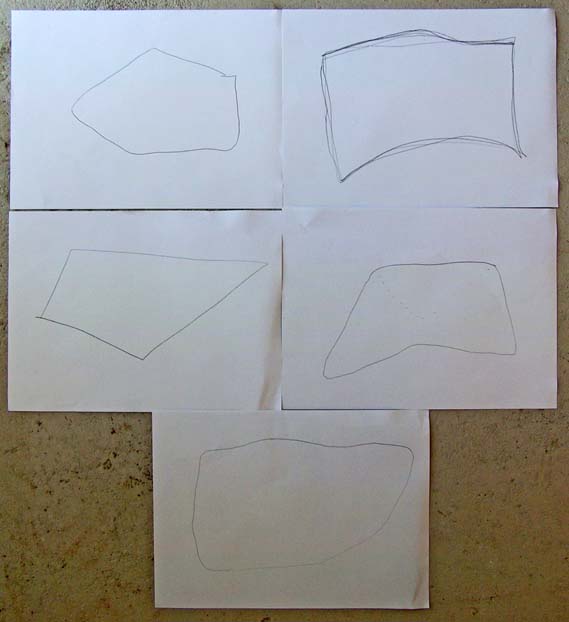
Methodology, Education, Art
13 February, Mphil Arts Culture and Education, Faculty of Education at Cambridge University
My active¬†lecture¬†‘Visual Art: Practice and Research defined by each other’ tried to¬†propose participatory art within¬† action reasearch framework, and ¬†participatopry research models.
Within this art practice as research is an element, the visual allowing for more deep, open, subjective, critical communication with participants. Participants are involved¬†at different stages of the developemnt of the project and their input moves the path of the project itself. Participants have different roles: co-researchers, technicians, public and intervene at different stages of the project…
Interesting discussion emerged, below students introduction
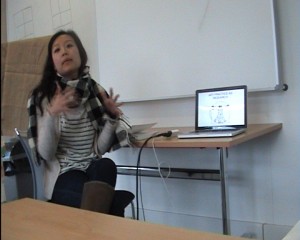
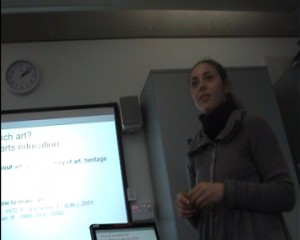
active particiaption and drawing exercise below
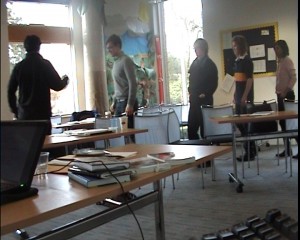
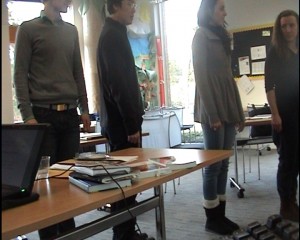
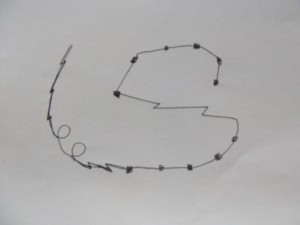
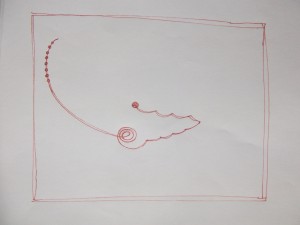
and Cologni, back to discussion  afterwards
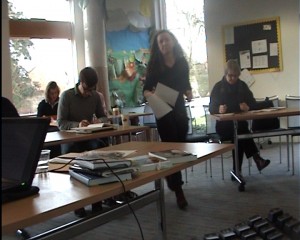
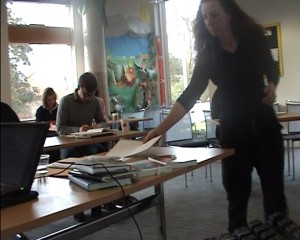
CAMBRIDGE, SCIENCE FESTIVAL 2012
ROCKFLUID, INTERFACING WITH MEMORY
Caterina Albano, Elena Cologni, Lisa Saksida
Department of Experimental Psychology, University of Cambridge, Sat 17 March 2012, Science Festival
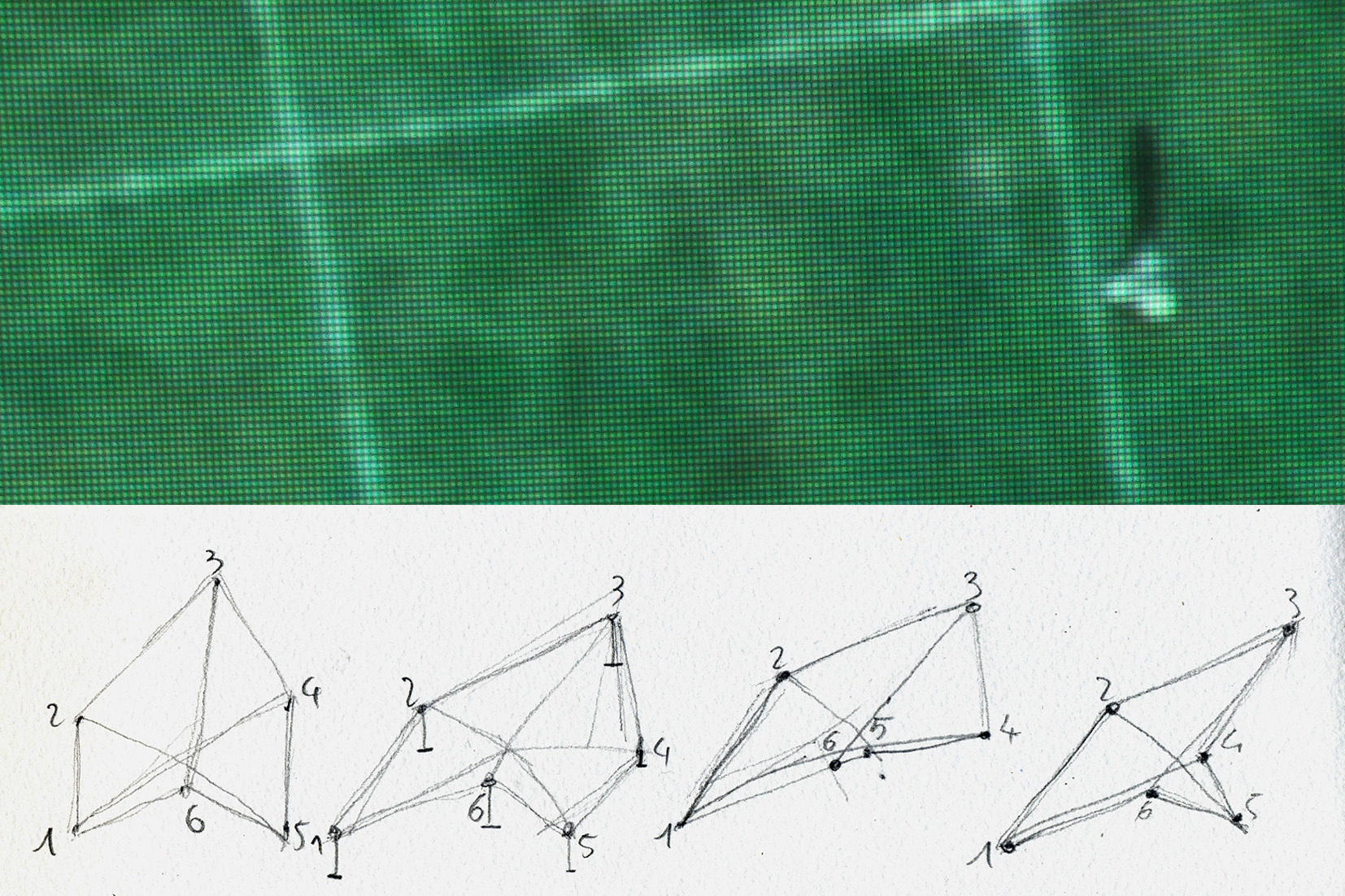
workshops, Ages +12
How does technology effect our perception and memorisation of place? Starting from a memory exercise, the activity will highlight similarities and differences between our mnemonic archive and a database, through a journey intersecting psychology, geometry, performance and sculpture. The current alienation of the individual induced by a technology dominant economy is based on an urge to cut the distance over time and space in today‚Äüs communication systems. The artistic manifestations of the project attempt to create possibilities for encounters in shared physical spaces where we experience the environment through moving our body/mind in space thus regaining and defining our places (psycho-geography,relational tactics). The work produced interrogates for example on how digital time has influenced our sense of subjective time. This will be done by breaking the accepted relation memory-past and focus on the present moment of recollection. With the current obsession over constantly documenting our lives, we may feel (and fear) that we cannot do the same with memory. By proposing that we do change our memories in the present by recollecting them, we may find in this very quality of instability of memory our ‘place’.
Artist Elena Cologni and Scientist Lisa Saksida have had a year long collaboration for this awarded project which explores the ‚Äėmateriality‚Äô and ‚Äėspatiality‚Äô of memory through psychological and artistic tools. This collaboration, starting from shared issues in similar context, aims at attempting an exchange between Art and Neuro-Psychology based on the status of objects, time and space embodiment.
This collaboration is based on the consideration of memory in its ‚Äėfluid‚Äô and ‚Äėsolid‚Äô states, as Dr Saksida suggests referring to the recollection of events. Memory in its archival state would be solid, and, when in the process of resurfacing would be fluid. In this sense this transitional quality of memory can be a metaphor of Cologni‚Äôs way of working, as she considers art in a similar way, neither only matter related, nor only ephemeral: its manifestations can vary and feed into each other.
Caterina Albano will prompt a discussion on the method, language and  possibilities of interdisciplinary collaborations, such as this.  Dr Caterina Albano is senior research fellow and curator for Artakt, Central Saint Martins College of Art and Design, University of the Arts London. Albano curates, lectures and publishes in the field of art and science, cultural theory, and cultural history of emotion, and on the theory of curating. She is the author of Fear and Art (Reaktion, forthcoming). Her recent work focuses on issues of memory, space and the moving image.
Her work as curator includes: research of Artakt‚Äôs two major exhibitions Spectacular Bodies (Hayward Gallery 2000) and Seduced (Barbican Art Gallery 2007). For the latter, she curated The Voice of Sex. She co-curated the exhibitions Head On (Science Museum/Wellcome Trust, 2002) and The Genius of Genetics (Mendel Museum, Brno 2002).¬† She curated Psychoanalysis: The Unconscious in Everyday Life (Science Museum, Oct 2010-April 2011); Crossing Over: art, science, biotechnologies (The Royal Institution of Great Britain, Oct. 2008, Wellcome Trust and Arts Council award) and was the curatorial consultant for the Wellcome Trust for the exhibition Medicine and Art: Imagining a Future for Life and Love ‚Äď Leonardo, Okyo, Damien Hirst (Mori Museum, Tokyo, 28th Nov. 2009- 2010), and First Time Out (20th January-22nd August 2011).
ROCKFLUID is awarded Grants for the Arts, Arts Council of England, within the Escalator Programme through Colchester Arts Centre, and is supported by Wysing Arts Centre and the University of Cambridge.
What Happened
Lisa talked about decay and interference in memory, and then she asked the audience to observe and write what they remembered of an image of a professor’s office to demonstrate the level of interference from imagination on memory
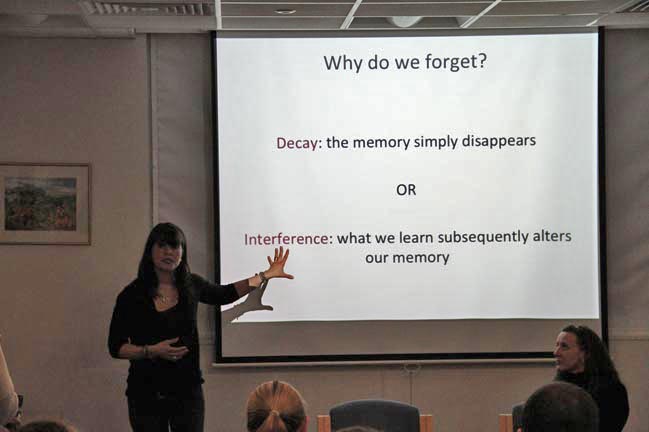
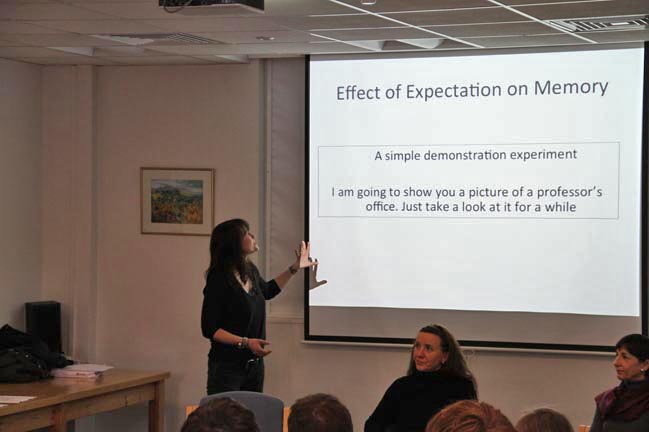  
  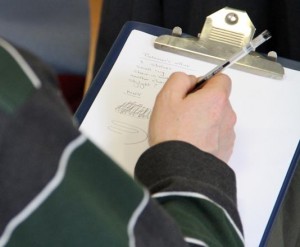
Caterina talked about the nature of interdisciplinary collaborations such as this from her experience as curator, and how emotions affect our way of remembering
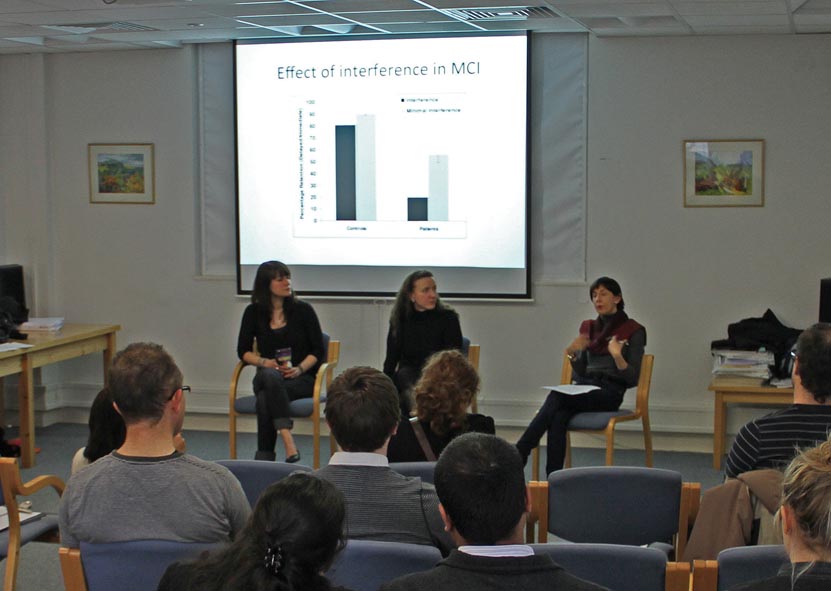
Elena set up two exercises to relate memory to experience of space
1- participants from the audience followed her walking and forming a shape in space. They were then asked to draw from the experience soon afterwards
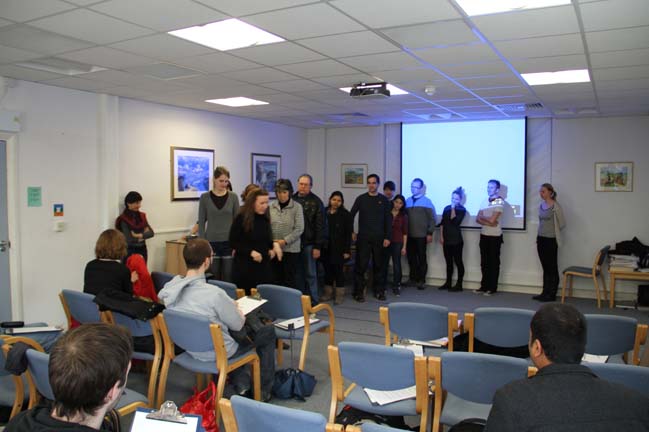
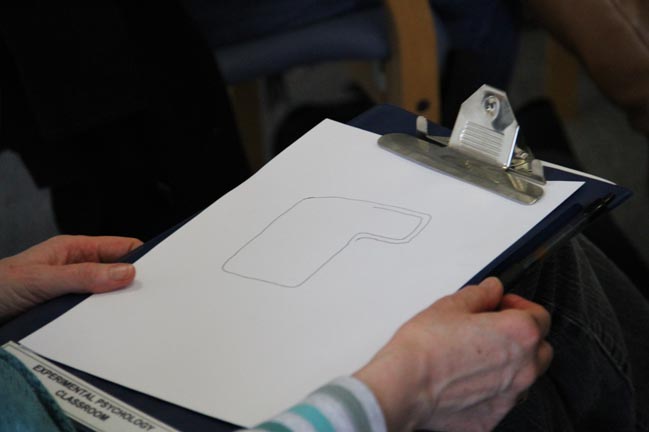
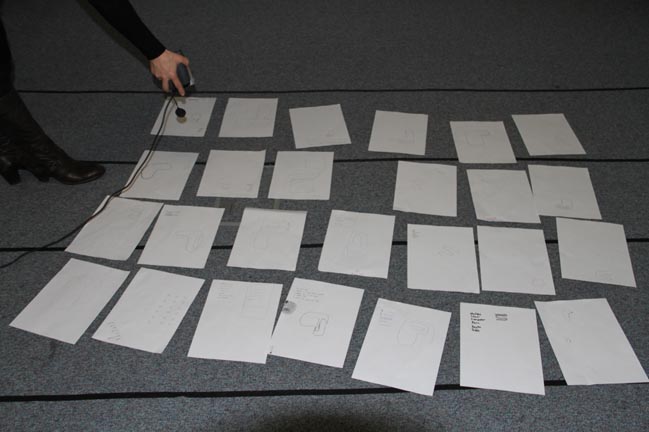
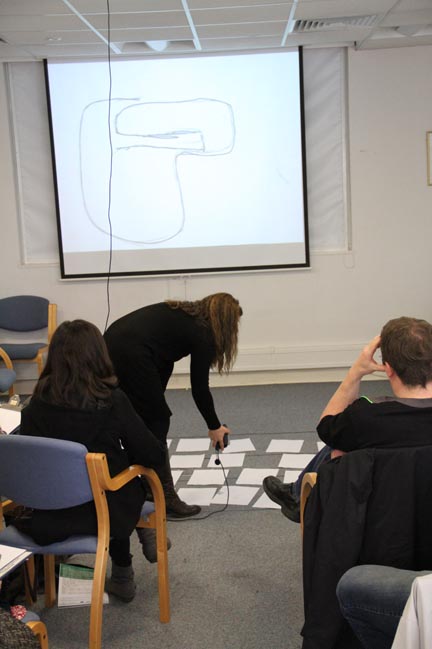
2- interference in memorising the experience of time (subjective time) and distance in the present. Participants are asked to walk over a line and write how long it took, two of them are wearing a silly hat. One of the participants was asked to hold a camera (conneted to a projector) recording the space proximal to their body
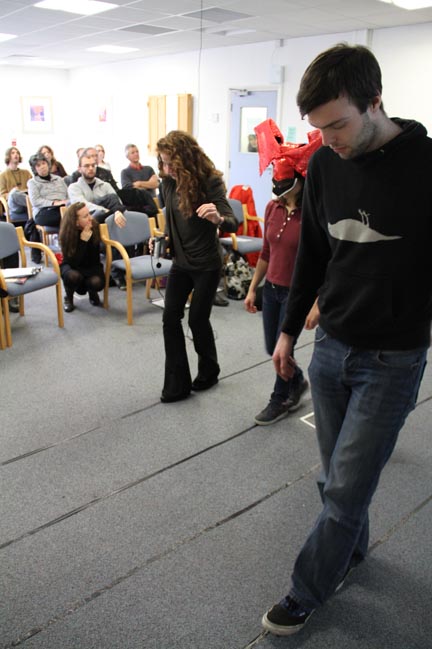
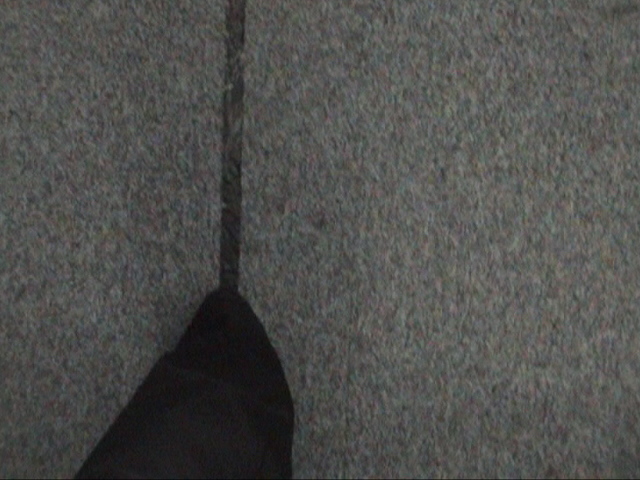
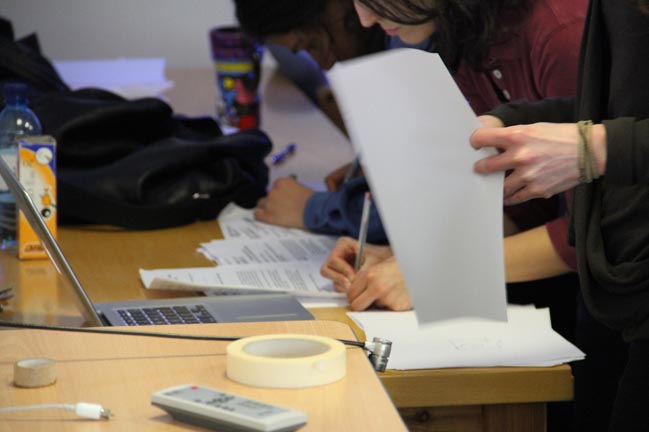
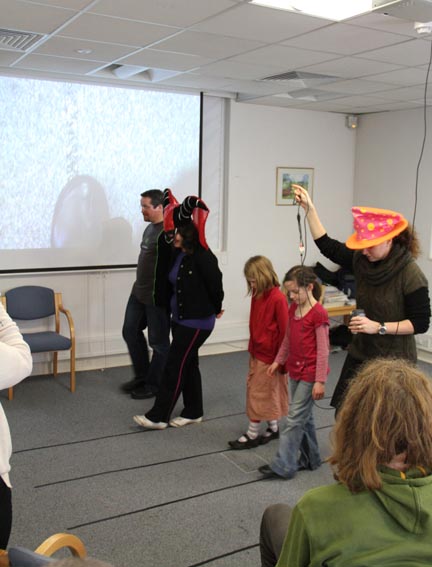
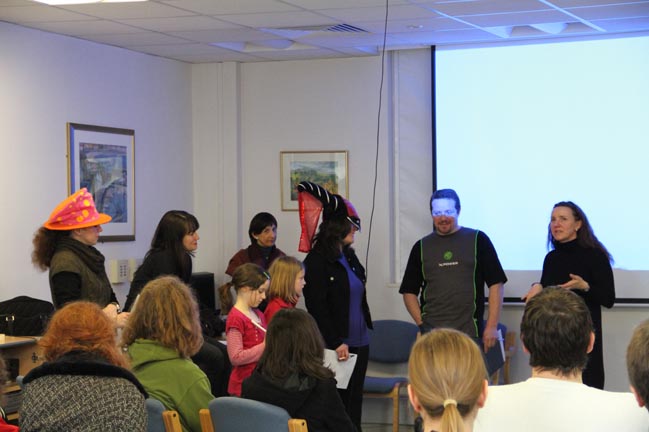
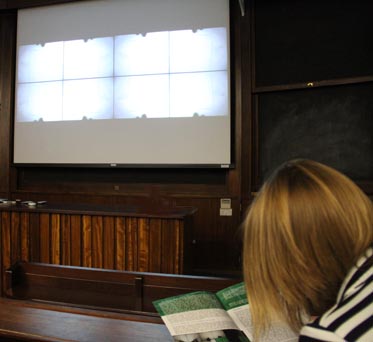
Screening of the work in progress on interference in the small lecture theatre
more information on content of the workshop 17 march (2)
WYSING ARTS CENTRE
 Drawing from memory and imagination
Wysing Young Artists program, Wysing Arts Centre,
12 October 2011, 2 hours, 30mnts
The workshop offers the opportunity to practice the activity of looking and memorising implied in still life drawing, with a twist.
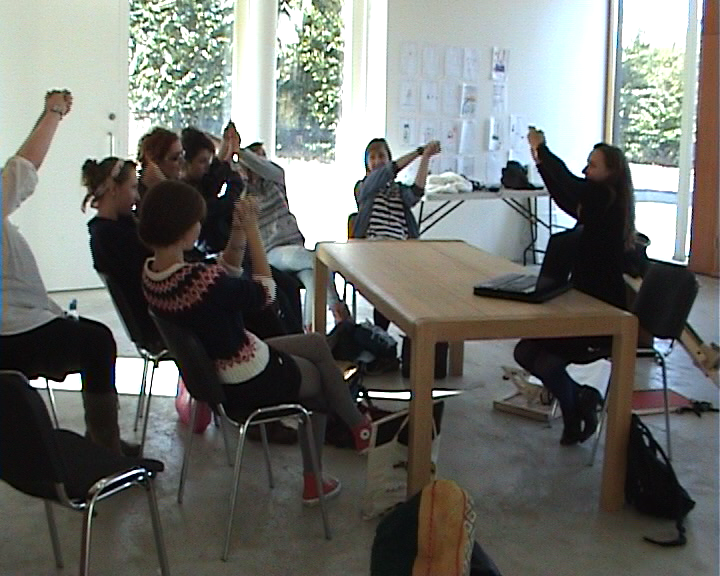
After an introduction about processes of memorisation and recollection the students will train to look and memorise, the composition in front of them. They will then draw the same from memory in a different environment. After coming back in front of the composition a second round of observation and discussion takes place. They go out at drawing it again from memory. A number of questions start to appear: do they remember the details memorised before and add the new details? do they add the newly memorised details and overlap them with the memory of the previous drawing instead? what to do if they do not remember? do they leave the paper white or do they ‘make it up’?
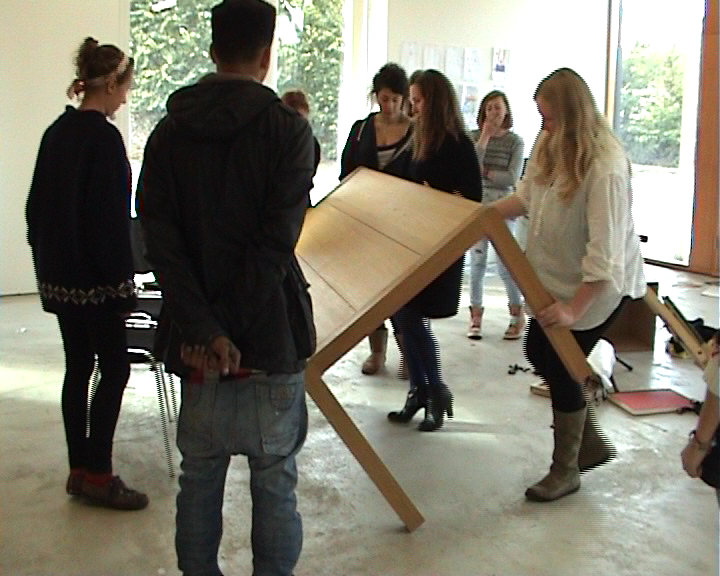
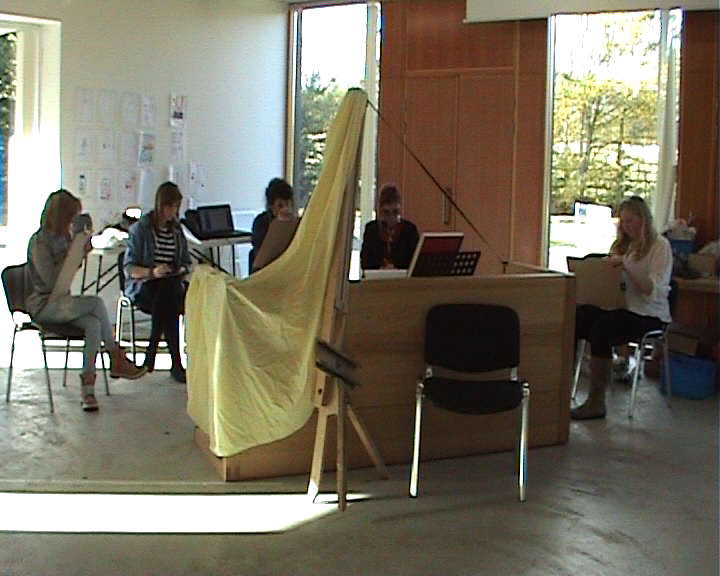
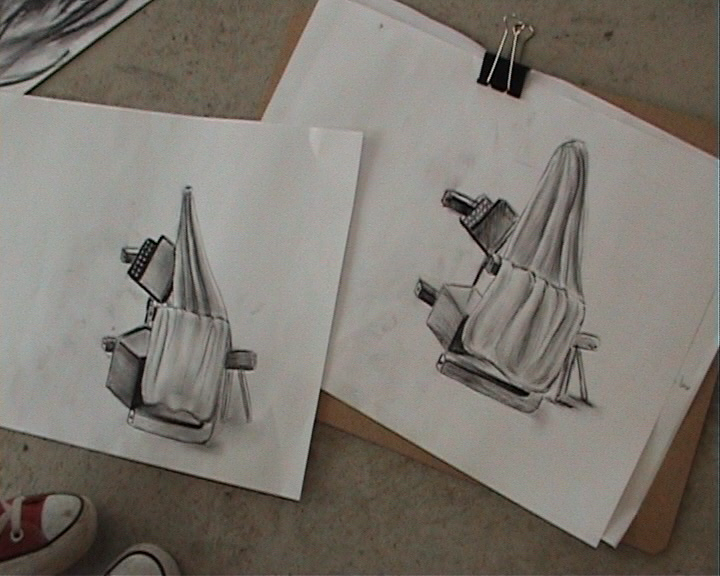
ANGLIA RUSKIN UNIVERISTY
ROCKFLUID. Memories; Traces; Places
Anglia Ruskin Fine Art Research Unit Talks
Wednesday 12th October 2011 2pm Ruskin 211
Elena Cologni
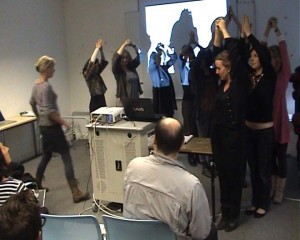
The current alienation of the individual induced by a technology dominant economy is based on an urge to cut the distance over time and space in today‚Äôs communication systems. ROCKFLUID represents an attempt to investigate the context. It creates possibilities for encounters in shared physical spaces where we experience the environment through moving our body in space thus defining our places. I am interested in doing this by looking at psycho-geography, adopting relational tactics, and sharing the creative process with participants. I also believe that to build an awareness of how digital time has disrupted our sense of subjective time is a key element. This can be done by breaking the accepted relation memory-past. With the current obsession over constantly documenting our lives, we may feel (and fear) that we cannot do the same with memory. By proposing that we do change our memories in the present by recollecting them, we may find in this very quality of instability of memory our ‘place’.
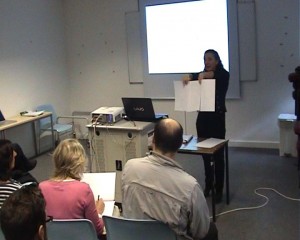
images from the interaction with the audience about relating memory to our experience of space in time exercise ‚ÄúTravelling as a way to produce forms‚ÄĚ (Altermodernism 2009, Nicholas Bourriaud). Starting from the obvious observation that there is a time distance between the now of perception and the after of the recollection, and a space distance between where we start from and where we return: What does ‚Äėthis‚Äô gap tell us? Is such gap there at all?
SAINT ALBAN’S CATHOLIC PRIMARY SCHOOL
Science Festival Cambridge, 23-25 March 2011
The workshops were for pupils from reception, year 1, year 2 and year 3. After having defined what memory is, the children engaged in a series of practical exercises to understand the stages of memory: sensory memory, short term memory and long term memory. They were asked to draw from memory: firstly by recollecting an event or a favourite toy. Afterwards the kids walked in a line and stopped after having formed a shape. In having paid attention to it, and once back to their sits, they were asked to draw it. The pupils were made to compare all the drawings displayed onto the floor and discussed the subjective element in memory and drawing, as compared for example to the medium of photograph. (continued)
CAMBRIDGE, SCIENCE FESTIVAL 2011
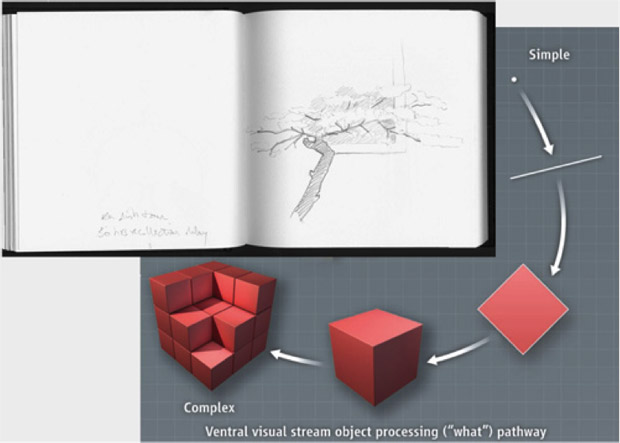
ROCKFLUID, a dialogue between science and art
Department of Experimental Psychology, University of Cambridge, Sat 19 March 2011
Which ‚Äėform‚Äô does link matter, perception and memory? Starting from a memory exercise, the activity was at the intersection of psychology, geometry, performance and sculpture. Participants had an object which is dear them.
Artist Elena Cologni and Scientist Lisa Saksida developed an ‚Äėart/lab‚Äô set up to explore the ‚Äėmateriality‚Äô and ‚Äėspatiality‚Äô of memory through psychological and artistic tools. This collaboration, starting from shared issues in similar context, aims at attempting an exchange between Art and Neuro-Psychology based on the status of objects, time and space embodiment. (continued)
UNIVERSITY OF UTRECHT
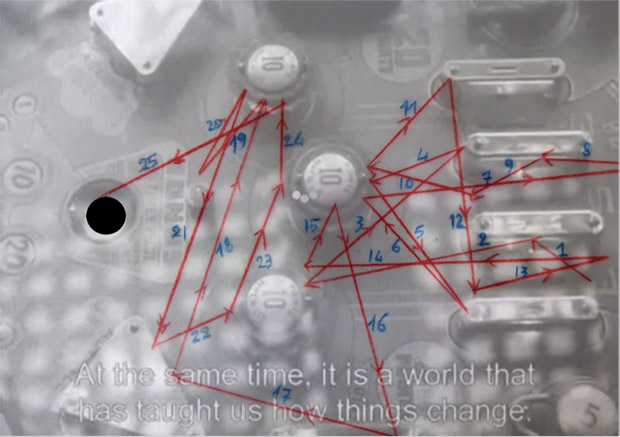
‚ÄėDrawing exercise‚Äô inject print + tracing paper + pencils, 2011, Elena Cologni
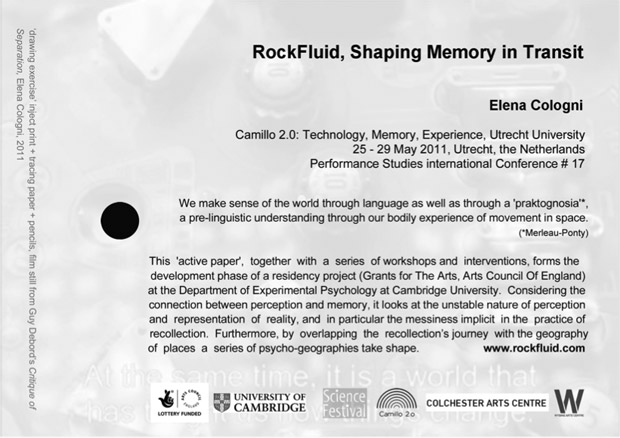
Performance Studies international #17, 25-29 May 2011, Utrecht, The Netherlands
Paper Abstract:
Condition: ‘the present [is] that which is, when it is simply what is happening. […and ] all perception is already memory‚Äô[1]?
Observation: We make sense of the world through language as well as through a ‘praktognosia'[2], a pre-linguistic understanding through our bodily experience of movement in space. (continued)
